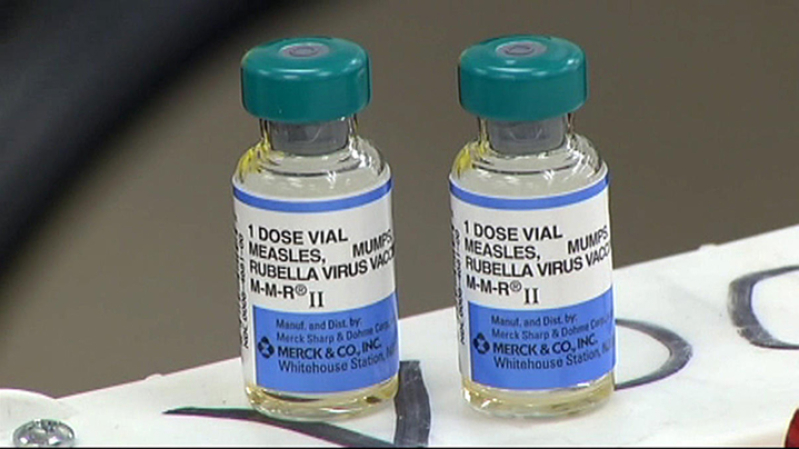
With the recent outbreak of measles in California, many Americans are puzzled as to why some parents might choose not to vaccinate their child from a preventable disease. While the vast majority of society is pro-vaccine, some parents object to certain vaccines because of the way that they are made - not based on the belief that certain ingredients might cause autism, attention deficit disorder, or even allergies, but on moral grounds. The Measles, Mumps, and Rubella (MMR) vaccine is made using cells from aborted babies, a grievous fact that should call those who value life in the womb to advocate for improved vaccine production.
Because of the recent outbreak in California, the Centers for Disease Control and Prevention (CDC) is urging parents to vaccinate their children against the measles. They warn that this year could present the highest number of measles cases since the disease was virtually eradicated in the United States in the year 2000.
According to Dr. Robert Sears, MD, measles are spread like the common cold and can be quite serious; mild cases of the measles involve a rash, fever, runny nose, and a cough which lasts for about a week, and more severe cases can result in a high fever, an ear infection, pneumonia, or encephalitis. The fatality rate from measles is 1 in 1,000 for those who contract the disease, and about 600 cases were reported in the U.S. last year.
While the disease is rare in America, most parents choose to vaccinate their children as a preventive measure. Many are unaware, however, that the MMR vaccine is made using cells from aborted babies - from a little girl who was three months old in her mother's womb and a fourteen-week-old baby boy.
The Hepatitis A and Chickenpox vaccines are also made this way, and their product inserts specify that proteins and residual DNA from the aborted children are present in the shots.
This poses a question: would you willingly inject your child with something that was made from these aborted babies?
Parents who believe that life begins at conception are faced with a terrible choice: either put your child at risk for a disease, no matter how rare it might be, or violate your conscience.
According to Dr. Sears, the MMR vaccine made by Merck combines three live viruses into a single shot. While the measles and mumps portions of the vaccine are cultivated in cells from chicken embryos, it is the rubella portion that uses cells from aborted children. Merck used to sell each vaccine separately, but stopped offering anything but the combined MMR vaccine because there was a lack of demand for the individual shots.
With the recent mumps and measles outbreaks in the United States, there could be enough demand for separate measles, mumps, and rubella vaccines once again. Americans who are morally opposed to the current MMR vaccine might then be more willing to vaccinate their children for the measles and for mumps, at least, until the manufacturing process changes for rubella.
"Using abortion-tainted vaccines encourages abortion just as does purchasing any other product derived from fetal tissue," writes Jameson Taylor from the Catholic Education Resource Center - "Parents must determine for themselves after much prayer and study whether they can [consciously] use these vaccines."







